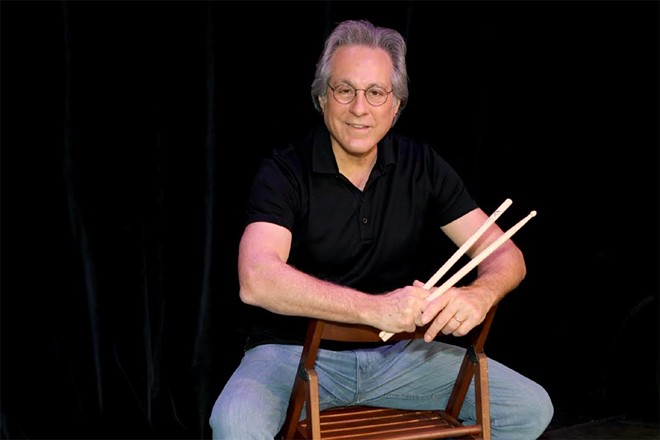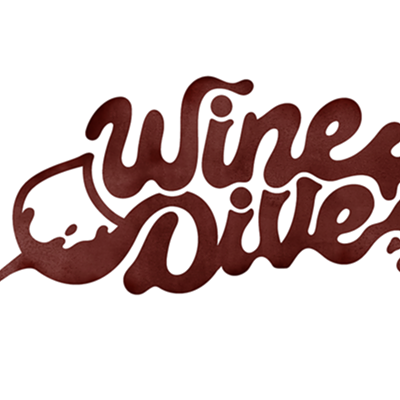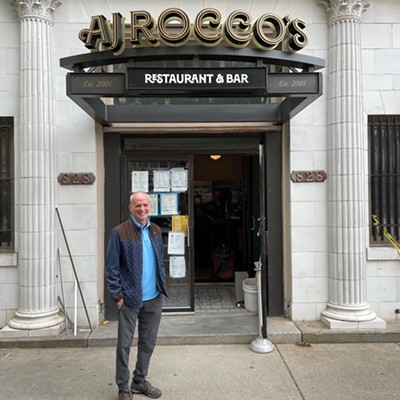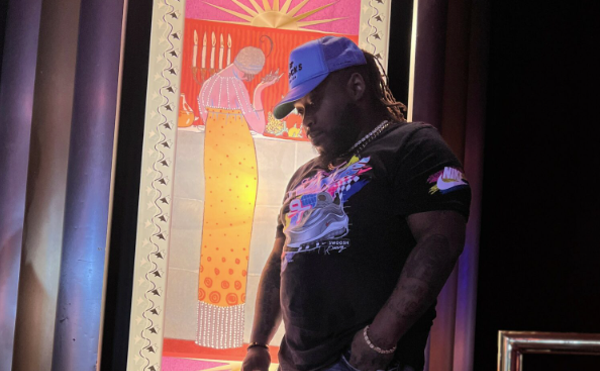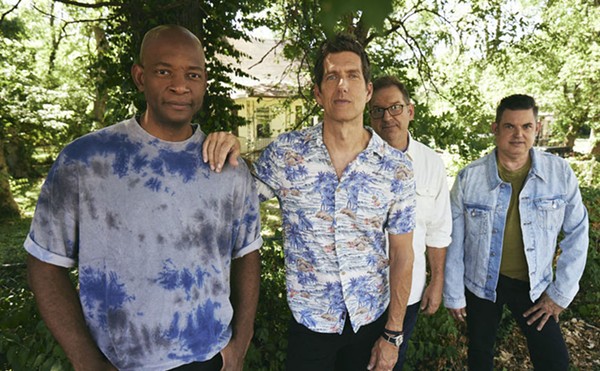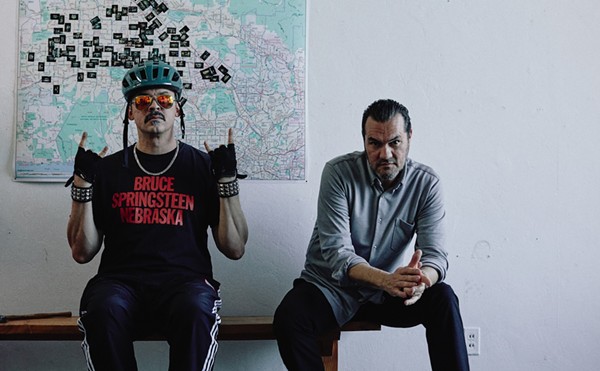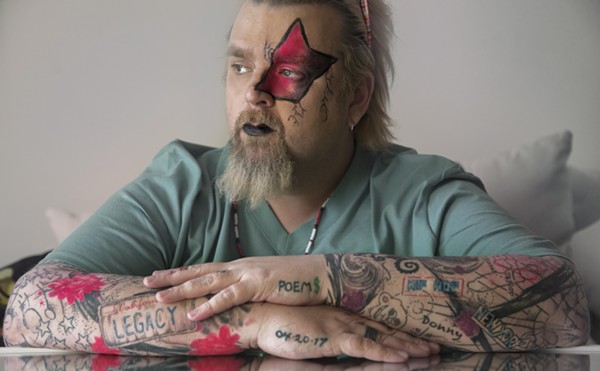The E Street Band's Max Weinberg Brings His Jukebox Show to the Winchester
By Matt Wardlaw on Wed, Apr 25, 2018 at 10:05 am
[
{
"name": "Ad - NativeInline - Injected",
"component": "38482495",
"insertPoint": "3",
"requiredCountToDisplay": "5"
},{
"name": "Real 1 Player (r2) - Inline",
"component": "38482494",
"insertPoint": "2/3",
"requiredCountToDisplay": "9"
}
]
Max Weinberg’s first rock ’n’ roll jukebox, figuratively, came straight out of the speakers of the radio when he was growing up. As he recalls now, his favorite thing was learning the songs that were on the Top 40 charts, and he took that acquired knowledge and played with a lot of different bands as a kid.
“Of course, when you look back on that time, the '60s and '70s, before I got with Bruce, apart from taking drum lessons, it was how I learned how to play the drums and how to perform,” he says during a phone interview. He brings Max Weinberg's Jukebox to the Winchester at 9 p.m. on Thursday, May 3. “I grew up as a drummer having to play all different kinds of music. Not just rock, but a little bit of everything. My first love of course, was rock, and as a drummer, you know, bands always need a drummer. It’s kind of like a hockey team always needs a goalie. And if you know the songs, even better.”
With his Boss, Bruce Springsteen, currently playing to sellout crowds with a solo show on Broadway, Weinberg found himself at loose ends, with some time to fill and his manager had an interesting idea of how the veteran drummer could keep his drumming chops sharp during the downtime.
“You love to play the old rock tunes and people love to hear them,” he told Weinberg. “How about a small ‘all-request from the audience’ band?’” As he described it, it sounded like a human jukebox — you pick the songs! So I decided on the basics, which is two guitars, bass and drums, and Max Weinberg’s Jukebox was born!”
Weinberg gave his manager some instructions — he wanted to play small clubs with a specific reason in mind.
“I [needed] to play places like the Stone Pony or the old Agora Club in Cleveland, where it’s a drinking establishment. Because this isn’t a concert — it’s a party! Playing everything,” he says. “People get to pick on revolving video screens that are placed around the venue from about 400 songs that just keep rotating. The audience picks the songs, and they just call them out. The idea is to create a little bit of pandemonium. Everybody knows every song, because it’s from the Beatles to the Stones to the Who. A little Bruce, Van Morrison, the Beach Boys. You name it — the guys that I’m playing with are incredible. They know every song. They sing like Crosby, Stills and Nash, they play unbelievably and we’ve been having a blast with it.”
Weinberg’s band, as he indicates, is made up of ace players that he’s “known forever, individually” — singer-songwriters Glen Burtnik (Styx, the Orchestra) and Bob Burger, plus singer-guitarist John Merjave form the usual core of the band with Weinberg. When they’re not playing with the E Street Band drummer, they work steadily with their own project, the Weeklings, a New Jersey-based group that performs a blend of original power pop mixed with Beatles classics. As lifelong music freaks who have also spent decades in the rock ’n’ roll ecosystem of concert stages and recording studios, they can handle the wide spread of material in the Jukebox catalog of songs with ease.
“They came up the same way, and they know all of the songs,” Weinberg says. “They’ve spent their lives doing the same thing, so it’s a really fun time.”
“I've always been impressed by Max's professionalism and his drumming,” Burtnik adds in an email, talking about his work with Weinberg. “I'm very much enjoying playing this music from my [and his] youth alongside Max on stage.”
Weinberg has a long history living on the edge with unpredictable setlists that has really gone to the extremes in recent years as fans began to bring signs with their song requests to E Street Band shows, where Springsteen would collect the signs and call out a wide range of both well-known songs and obscurities from the catalog.
“It became kind of a fun part of the show, because we never knew what we were going to play. The object of growing up in a Jersey band was that you had to know everything,” he says. “Or at least know how to fake your way through it. Bruce and the E Street Band are, I think, very, very good at that, particularly the faking your way through it part of it.”
It seems like an interesting position to be in, navigating the freeform nature of those setlists, but Weinberg says there weren’t really any curve balls for him personally, although he admits there was a bit of homework that went in to playing some songs from outside of Springsteen’s body of work.
“As Bruce has said in interviews, ‘As long as me and Max know it, we can play it and everybody else can figure it out,’ on an extemporaneous basis. He got into a thing in Australia a couple of tours ago where in each city, we played a big hit song from that city. We played [songs like] ‘Stayin’ Alive,’ ‘Friday on my Mind,’ which took a lot….you know. ‘Friday on my Mind’ is not something that you just go up there and play. You have to work out the parts. They’re very intricate.”
His knack for playing Top 40 with bands early on gave him some important skills that remain intact to this day.
“As long as I knew the feel and the genre, I could play it. I have one of those memories, it’s just weird, that if I’ve heard a song on the radio once, I can play it,” he says. “I have a great memory — I don’t know what that’s about, but I don’t forget things. I mean, Bruce’s songbook is about 800 songs and he could virtually pull out any one of them at any time. Not that he would — I mean, he’s not looking to trick us. I don’t keep count, but I think [guitarist] Nils [Lofgren] keeps count. We did like 200 different songs, I think, on this last tour. So you do sort of have to be ready for almost anything.”
The experience of a Jukebox show, similarly, finds the band ready and fully loaded for wherever the night goes musically. Weinberg describes it as an “audience participatory” type of evening. “If somebody has a question, I answer it. I talk quite a bit,” he says. “There’s a little bit of, I don’t know if I’d go so far as to call it comedy, but I did pick up a certain amount of perspective on the world working with all of these great writers for all of those years on TV so that comes out. It’s very interactive.”
Much like a bar band’s free-flowing stream of songs that evolve based on the mood of the room and what people are yelling out, Weinberg says that each night is completely different — and indeed, scanning some of the recent setlists, they play a wide range of songs that varies wildly from night to night.
“I never know what people are going to ask for. Some nights, it could be very heavy on the Beatles. We do a lot of Beatles songs,” he says.
One song that seems to find its way into the show each night is “American Girl” by Tom Petty & the Heartbreakers.
“I think that it’s a song that captured, it seems, in all four corners of the United States, at least where I’ve played with this band, everybody’s imagination,” he says. “I’m sure the fact that he passed away made it even more poignant, but everybody loves that song. We also get the Band’s ‘The Weight,’ [originally] sung by Levon Helm — people like to hear that, it seems, every night. But then it could range, some nights it could be a little bit heavier crowd that wants to hear Bad Company, or everybody loves ‘Highway to Hell,’ and I love playing that song.
Even after all of these years, he still gets a big thrill out of playing and nailing the really difficult sections of classics like Led Zeppelin’s “Good Times, Bad Times.” Thanks to a rented drum kit at a recent Jukebox show, Weinberg hit the mark dead on.
“[That’s] particularly challenging for me. Because no one ever has approached the kind of drumming that John Bonham displayed throughout his short career.I played that crazy little drum part in ‘Good Times, Bad Times’ exactly. It’s a triplet [imitates section] and it’s not easy to play. It’s got to be a combination of your playing and the bass drum pedal. It was just a perfect combination and I played that song effortlessly and it was so much fun. If I can do that at the age of 67 and have fun doing it, strictly as a drummer, forget whether I’m in a stadium or I’m playing on a Bruce song, I had such a kick, you know, now I’m going to be John Bonham for the next two and a half minutes. I still get a charge out of that. Or if I play a Hollies song. It’s what kind of keeps me going. And it may be because I’m a drummer and not a songwriter or a guitar player, but I really get off on playing ‘Nowhere Man,’ you know, stuff that I learned how to play the drums to. So as long as I can keep doing that, I don’t think there’s any books in my near future.”
“Books” as in a memoir, a topic which comes up when we ask Weinberg if he has any plans to write his own book. He tells us that it could happen someday “when I get old.” The shows keeps him young and in good form.
“Playing with Bruce keeps me in shape, because that’s so intense. Four hours at that energy level,” he says. “And my metabolism needs that kind of challenge. So I’m either doing it in a gym to some extent and playing my Jukebox gigs or occasionally with [my] big band or jazz combo. I need to expel that kind of energy. It’s just in me. I guess that’s why I became a drummer in the first place.”
He calls Springsteen’s best-selling memoir “a tour de force,” and says, “I really enjoyed it and I thought the tone he hit and everything was really unbelievable.”
Weinberg gleaned some valuable advice from Springsteen as his longtime bandmate was working on the book.
“I remember having a conversation with Bruce about his book while he was writing it,” he says. “It was on the plane and this was before it came out, he was saying, ‘You know, when you’re doing something like this, you can’t just string a bunch of stories together. Everybody’s got a bunch of stories. You can’t just string stories together. There’s got to be a central theme.’”
For now, he’ll keep playing, wherever his drumming might take him. And as for the chance of further shows with Springsteen and the E Street Band?
“You know, I really don’t know. I’m asked that question everywhere I go. If I go to the pizza parlor, if I go to the supermarket and people know that I play with Bruce and the E Street Band. It’s been going on for 45 years,” he says with a laugh. “I don’t really know. None of us really know. He doesn’t know. His management doesn’t know, in terms of pulling the whole thing together. But I’ve always lived by the line that is in ‘Thunder Road.’ ‘Show a little faith/ There’s magic in the night.’ That’s my standard kind of approach. Because I don’t ask Bruce and I don’t ask him his business, what he’s thinking of, what he wants to do, what he’s going to do. There’s never been a discussion of what’s next. At least not between us. When I was doing the TV show, there was some logistics I had to work out, but that was logistics. But yeah, I think...I have a lot of faith and I have a lot of energy left. I’ll keep drumming regardless of whoever’s stage it’s on. I certainly hope so, that we play again. I have no crystal ball, but I do have a lot of faith.”
Max Weinberg's Jukebox, 9 p.m. Thursday, May 4, The Winchester, 12112 Madison Ave., Lakewood, 216-600-5338. Tickets: $67.50-$174.50, ticketfly.com.
“Of course, when you look back on that time, the '60s and '70s, before I got with Bruce, apart from taking drum lessons, it was how I learned how to play the drums and how to perform,” he says during a phone interview. He brings Max Weinberg's Jukebox to the Winchester at 9 p.m. on Thursday, May 3. “I grew up as a drummer having to play all different kinds of music. Not just rock, but a little bit of everything. My first love of course, was rock, and as a drummer, you know, bands always need a drummer. It’s kind of like a hockey team always needs a goalie. And if you know the songs, even better.”
With his Boss, Bruce Springsteen, currently playing to sellout crowds with a solo show on Broadway, Weinberg found himself at loose ends, with some time to fill and his manager had an interesting idea of how the veteran drummer could keep his drumming chops sharp during the downtime.
“You love to play the old rock tunes and people love to hear them,” he told Weinberg. “How about a small ‘all-request from the audience’ band?’” As he described it, it sounded like a human jukebox — you pick the songs! So I decided on the basics, which is two guitars, bass and drums, and Max Weinberg’s Jukebox was born!”
Weinberg gave his manager some instructions — he wanted to play small clubs with a specific reason in mind.
“I [needed] to play places like the Stone Pony or the old Agora Club in Cleveland, where it’s a drinking establishment. Because this isn’t a concert — it’s a party! Playing everything,” he says. “People get to pick on revolving video screens that are placed around the venue from about 400 songs that just keep rotating. The audience picks the songs, and they just call them out. The idea is to create a little bit of pandemonium. Everybody knows every song, because it’s from the Beatles to the Stones to the Who. A little Bruce, Van Morrison, the Beach Boys. You name it — the guys that I’m playing with are incredible. They know every song. They sing like Crosby, Stills and Nash, they play unbelievably and we’ve been having a blast with it.”
Weinberg’s band, as he indicates, is made up of ace players that he’s “known forever, individually” — singer-songwriters Glen Burtnik (Styx, the Orchestra) and Bob Burger, plus singer-guitarist John Merjave form the usual core of the band with Weinberg. When they’re not playing with the E Street Band drummer, they work steadily with their own project, the Weeklings, a New Jersey-based group that performs a blend of original power pop mixed with Beatles classics. As lifelong music freaks who have also spent decades in the rock ’n’ roll ecosystem of concert stages and recording studios, they can handle the wide spread of material in the Jukebox catalog of songs with ease.
“They came up the same way, and they know all of the songs,” Weinberg says. “They’ve spent their lives doing the same thing, so it’s a really fun time.”
“I've always been impressed by Max's professionalism and his drumming,” Burtnik adds in an email, talking about his work with Weinberg. “I'm very much enjoying playing this music from my [and his] youth alongside Max on stage.”
Weinberg has a long history living on the edge with unpredictable setlists that has really gone to the extremes in recent years as fans began to bring signs with their song requests to E Street Band shows, where Springsteen would collect the signs and call out a wide range of both well-known songs and obscurities from the catalog.
“It became kind of a fun part of the show, because we never knew what we were going to play. The object of growing up in a Jersey band was that you had to know everything,” he says. “Or at least know how to fake your way through it. Bruce and the E Street Band are, I think, very, very good at that, particularly the faking your way through it part of it.”
It seems like an interesting position to be in, navigating the freeform nature of those setlists, but Weinberg says there weren’t really any curve balls for him personally, although he admits there was a bit of homework that went in to playing some songs from outside of Springsteen’s body of work.
“As Bruce has said in interviews, ‘As long as me and Max know it, we can play it and everybody else can figure it out,’ on an extemporaneous basis. He got into a thing in Australia a couple of tours ago where in each city, we played a big hit song from that city. We played [songs like] ‘Stayin’ Alive,’ ‘Friday on my Mind,’ which took a lot….you know. ‘Friday on my Mind’ is not something that you just go up there and play. You have to work out the parts. They’re very intricate.”
His knack for playing Top 40 with bands early on gave him some important skills that remain intact to this day.
“As long as I knew the feel and the genre, I could play it. I have one of those memories, it’s just weird, that if I’ve heard a song on the radio once, I can play it,” he says. “I have a great memory — I don’t know what that’s about, but I don’t forget things. I mean, Bruce’s songbook is about 800 songs and he could virtually pull out any one of them at any time. Not that he would — I mean, he’s not looking to trick us. I don’t keep count, but I think [guitarist] Nils [Lofgren] keeps count. We did like 200 different songs, I think, on this last tour. So you do sort of have to be ready for almost anything.”
The experience of a Jukebox show, similarly, finds the band ready and fully loaded for wherever the night goes musically. Weinberg describes it as an “audience participatory” type of evening. “If somebody has a question, I answer it. I talk quite a bit,” he says. “There’s a little bit of, I don’t know if I’d go so far as to call it comedy, but I did pick up a certain amount of perspective on the world working with all of these great writers for all of those years on TV so that comes out. It’s very interactive.”
Much like a bar band’s free-flowing stream of songs that evolve based on the mood of the room and what people are yelling out, Weinberg says that each night is completely different — and indeed, scanning some of the recent setlists, they play a wide range of songs that varies wildly from night to night.
“I never know what people are going to ask for. Some nights, it could be very heavy on the Beatles. We do a lot of Beatles songs,” he says.
One song that seems to find its way into the show each night is “American Girl” by Tom Petty & the Heartbreakers.
“I think that it’s a song that captured, it seems, in all four corners of the United States, at least where I’ve played with this band, everybody’s imagination,” he says. “I’m sure the fact that he passed away made it even more poignant, but everybody loves that song. We also get the Band’s ‘The Weight,’ [originally] sung by Levon Helm — people like to hear that, it seems, every night. But then it could range, some nights it could be a little bit heavier crowd that wants to hear Bad Company, or everybody loves ‘Highway to Hell,’ and I love playing that song.
Even after all of these years, he still gets a big thrill out of playing and nailing the really difficult sections of classics like Led Zeppelin’s “Good Times, Bad Times.” Thanks to a rented drum kit at a recent Jukebox show, Weinberg hit the mark dead on.
“[That’s] particularly challenging for me. Because no one ever has approached the kind of drumming that John Bonham displayed throughout his short career.I played that crazy little drum part in ‘Good Times, Bad Times’ exactly. It’s a triplet [imitates section] and it’s not easy to play. It’s got to be a combination of your playing and the bass drum pedal. It was just a perfect combination and I played that song effortlessly and it was so much fun. If I can do that at the age of 67 and have fun doing it, strictly as a drummer, forget whether I’m in a stadium or I’m playing on a Bruce song, I had such a kick, you know, now I’m going to be John Bonham for the next two and a half minutes. I still get a charge out of that. Or if I play a Hollies song. It’s what kind of keeps me going. And it may be because I’m a drummer and not a songwriter or a guitar player, but I really get off on playing ‘Nowhere Man,’ you know, stuff that I learned how to play the drums to. So as long as I can keep doing that, I don’t think there’s any books in my near future.”
“Books” as in a memoir, a topic which comes up when we ask Weinberg if he has any plans to write his own book. He tells us that it could happen someday “when I get old.” The shows keeps him young and in good form.
“Playing with Bruce keeps me in shape, because that’s so intense. Four hours at that energy level,” he says. “And my metabolism needs that kind of challenge. So I’m either doing it in a gym to some extent and playing my Jukebox gigs or occasionally with [my] big band or jazz combo. I need to expel that kind of energy. It’s just in me. I guess that’s why I became a drummer in the first place.”
He calls Springsteen’s best-selling memoir “a tour de force,” and says, “I really enjoyed it and I thought the tone he hit and everything was really unbelievable.”
Weinberg gleaned some valuable advice from Springsteen as his longtime bandmate was working on the book.
“I remember having a conversation with Bruce about his book while he was writing it,” he says. “It was on the plane and this was before it came out, he was saying, ‘You know, when you’re doing something like this, you can’t just string a bunch of stories together. Everybody’s got a bunch of stories. You can’t just string stories together. There’s got to be a central theme.’”
For now, he’ll keep playing, wherever his drumming might take him. And as for the chance of further shows with Springsteen and the E Street Band?
“You know, I really don’t know. I’m asked that question everywhere I go. If I go to the pizza parlor, if I go to the supermarket and people know that I play with Bruce and the E Street Band. It’s been going on for 45 years,” he says with a laugh. “I don’t really know. None of us really know. He doesn’t know. His management doesn’t know, in terms of pulling the whole thing together. But I’ve always lived by the line that is in ‘Thunder Road.’ ‘Show a little faith/ There’s magic in the night.’ That’s my standard kind of approach. Because I don’t ask Bruce and I don’t ask him his business, what he’s thinking of, what he wants to do, what he’s going to do. There’s never been a discussion of what’s next. At least not between us. When I was doing the TV show, there was some logistics I had to work out, but that was logistics. But yeah, I think...I have a lot of faith and I have a lot of energy left. I’ll keep drumming regardless of whoever’s stage it’s on. I certainly hope so, that we play again. I have no crystal ball, but I do have a lot of faith.”
Max Weinberg's Jukebox, 9 p.m. Thursday, May 4, The Winchester, 12112 Madison Ave., Lakewood, 216-600-5338. Tickets: $67.50-$174.50, ticketfly.com.
Tags:
SCENE Supporters make it possible to tell the Cleveland stories you won’t find elsewhere.
Become a supporter today.
Scroll to read more Music News articles
Newsletters
Join Cleveland Scene Newsletters
Subscribe now to get the latest news delivered right to your inbox.

